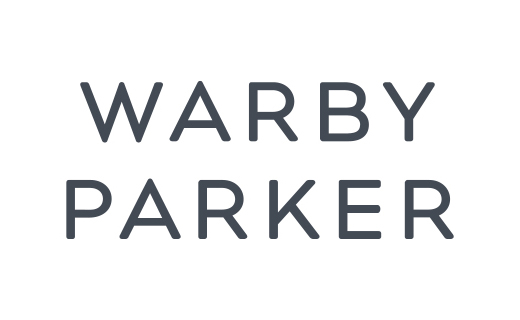Updated on January 30, 2025
How to Use Your HSA/FSA for Glasses and Contacts


Vision Center is funded by our readers. We may earn commissions if you purchase something via one of our links.
Both HSA and FSA cover prescription eyewear.
If you don’t have vision insurance, these accounts help save you money on health care.
What Are HSA and FSA?
HSA and FSA are untaxed accounts that allow you to pay for medical expenses. There are some key differences between the two that we’ll discuss below.
FSA
FSA stands for Flexible Spending Account.
To qualify for an FSA, you must have job-based health insurance. You can only open an FSA if your employer offers this option.
If an FSA is available to you, you can add funds to the account that don’t get taxed. You can then use these funds to pay for qualified medical expenses. Employers can also add contributions to your FSA, but it isn't required.
You’re allowed to contribute up to $2,850 per employer to your FSA. Your spouse can also contribute up to $2,850 to their own FSA.
FSA funds must be used within the year. Your employer may help with one of these two options:
- Offer a grace period to spend your money
- Allow you to carry over up to $550 to the following year
If these options aren’t available, any leftover funds will be forfeited.
HSA
HSA stands for Health Savings Account. This is an untaxed account that you manage yourself and can use to pay for eligible medical expenses.
To qualify for an HSA, you must be enrolled in a High Deductible Health Plan (HDHP). These insurance plans have a lower monthly premium but a higher deductible.
A deductible is an amount you must pay before your insurance plan starts paying.
You can’t open an HSA if you qualify for Medicare.
In 2022, the definition of an HDHP is any plan with a deductible of at least $1,400 for an individual or $2,800 for a family.
An HDHP’s total annual out-of-pocket expenses (deductibles, copayments, coinsurance, etc.) can’t be more than $7,000 for an individual or $14,000 for a family. Marketplace plans are included in this definition.
If you enroll in an HSA-eligible HDHP, you must open an HSA separately. You manage your own HSA account.
Once you open an HSA, you can contribute up to $3,650 for an individual or $7,300 for family coverage in 2022.
You’ll deduct the amount deposited into your HSA from the income you pay federal income tax on. Remember that your employer can contribute to your HSA, but they’re not required to.
You can only use your HSA funds to pay for eligible medical expenses. These roll over from year to year. You can build tax-free savings to pay for medical care later. Some HSAs earn interest, which isn’t taxed.
Where to Buy Sunglasses
Biggest Selection: GlassesUSA
Fastest Delivery: EyeBuyDirect
Best Independent Retailer: Warby Parker
HSA and FSA Coverage
You can use your HSA or FSA to pay for vision care, including:
- Prescription eyeglasses
- Prescription sunglasses
- Prescription contact lenses
- Eye exams
- LASIK and other vision correction surgery
- Reading glasses
- Eye drops
- Eye care co-pays or deductibles
In addition to vision care, common medical expenses covered by HSA and FSA include:
- Prescription medications
- Deductibles
- Copayments
- Coinsurance
- Physical examinations
- Psychiatric care
- Psychologists
- Dental work
- Special education
- Birth control
- Hospital services
- Addiction treatment
- Ambulance service
- Chiropractor
- HMOs
- Lab fees
- Certain legal fees
- Long-term care
- Nursing homes and services
- Surgeries
- Wheelchairs
- X-rays
This is not a comprehensive list of eligible expenses. For a complete summary of eligible expenses, look at IRS Publication 502.
What Isn’t Covered by HSA and FSA?
Your HSA or FSA will not cover:
- Non-prescription glasses (aside from over-the-counter reading glasses)
- Non-prescription sunglasses
- Non-prescription contact lenses
Other common medical expenses that are not covered by HSAs or FSAs include:
- Insurance premiums
- Cosmetic surgery
- Federally controlled substances
- Child care
- Funeral expenses
- Future medical care
- Gym memberships
- Household
- Medicine from other countries
- Non-prescription drugs
- Nutritional supplements
- Teeth whitening
For a complete summary of ineligible expenses, look at IRS Publication 502.
HSA vs. FSA Comparison Table
| Health Savings Account (HSA) | Flexible Savings Account (FSA) | |
| Requirements | You must have a high-deductible health plan and can’t be eligible for Medicare | Must be offered by your employer |
| Managed by | You | Your employer |
| Annual contribution limit (2022) | $3,650 for an individual or $7,300 for a household | $2,850 per employer |
| Contribution schedule | You can change your contribution amount at any time | Contribution amount can only be changed during open enrollments or after a change of circumstances |
| Withdrawal penalty (for non-medical expenses) | 20% before age 65; no penalty after you turn 65 | Employers decide if you can withdraw funds |
Where Can I Get Glasses and Contacts with My HSA/FSA?
You can use your HSA and FSA funds to pay for glasses or contacts at:
- Doctor’s offices
- Pharmacies
- Online glasses retailers
- Online contact lens retailers
See an eye doctor if you have never purchased prescription glasses or contacts before. They will perform a complete eye exam and, if applicable, contact lens fitting.
Afterward, they will provide you with one prescription for your glasses and another for your contacts. Glasses and contact prescriptions are different.
You can then use your prescription to purchase glasses and contacts from your eye doctor or an online retailer.
We suggest purchasing glasses and contact lenses online if you already have a valid prescription. They are usually cheaper than purchasing eyewear from a doctor’s office.
You don’t need to buy contacts/glasses from wherever you got the prescription.
Best Places to Buy Glasses with HSA/FSA

Our number one choice for glasses is Warby Parker. They're an independent retailer that sells glasses, sunglasses, and contacts.
Warby Parker frames are stylish, durable, and comfortable. Their customer service is impeccable. They also let you try on 5 pairs of glasses at home for free with their home try-on program.
You can use your HSA or FSA funds at Warby Parker.
Read our full review of Warby Parker.

Another great online retailer is Liingo Eyewear. They sell prescription eyewear at a slightly lower price point than Warby Parker.
Their frames are stylish and comfortable. They offer an identical home try-on program.
Read our full review of Liingo Eyewear.
Or read our article comparing Warby Parker vs. Liingo Eyewear.
Best Place to Buy Contacts with HSA/FSA

1-800 Contacts is our top choice for online contact lens retailers. They top the list because of their:
- Unmatched selection
- 5-star customer service
- Online prescription renewal test
Read our full review of 1-800 Contacts.
In this article
4 sources cited
Updated on January 30, 2025
Updated on January 30, 2025
About Our Contributors
Michael, a lead content writer for Vision Center, brings eight years of experience in medical copywriting and advanced research methodologies. With a B.A. in English and Linguistics from the University at Buffalo, he specializes in creating detailed, evidence-based content, particularly in the field of eye health, to educate readers and guide them toward appropriate treatments.
Dr. Melody Huang is an optometrist and freelance health writer with a passion for educating people about eye health. With her unique blend of clinical expertise and writing skills, Dr. Huang seeks to guide individuals towards healthier and happier lives. Her interests extend to Eastern medicine and integrative healthcare approaches. Outside of work, she enjoys exploring new skincare products, experimenting with food recipes, and spending time with her adopted cats.






